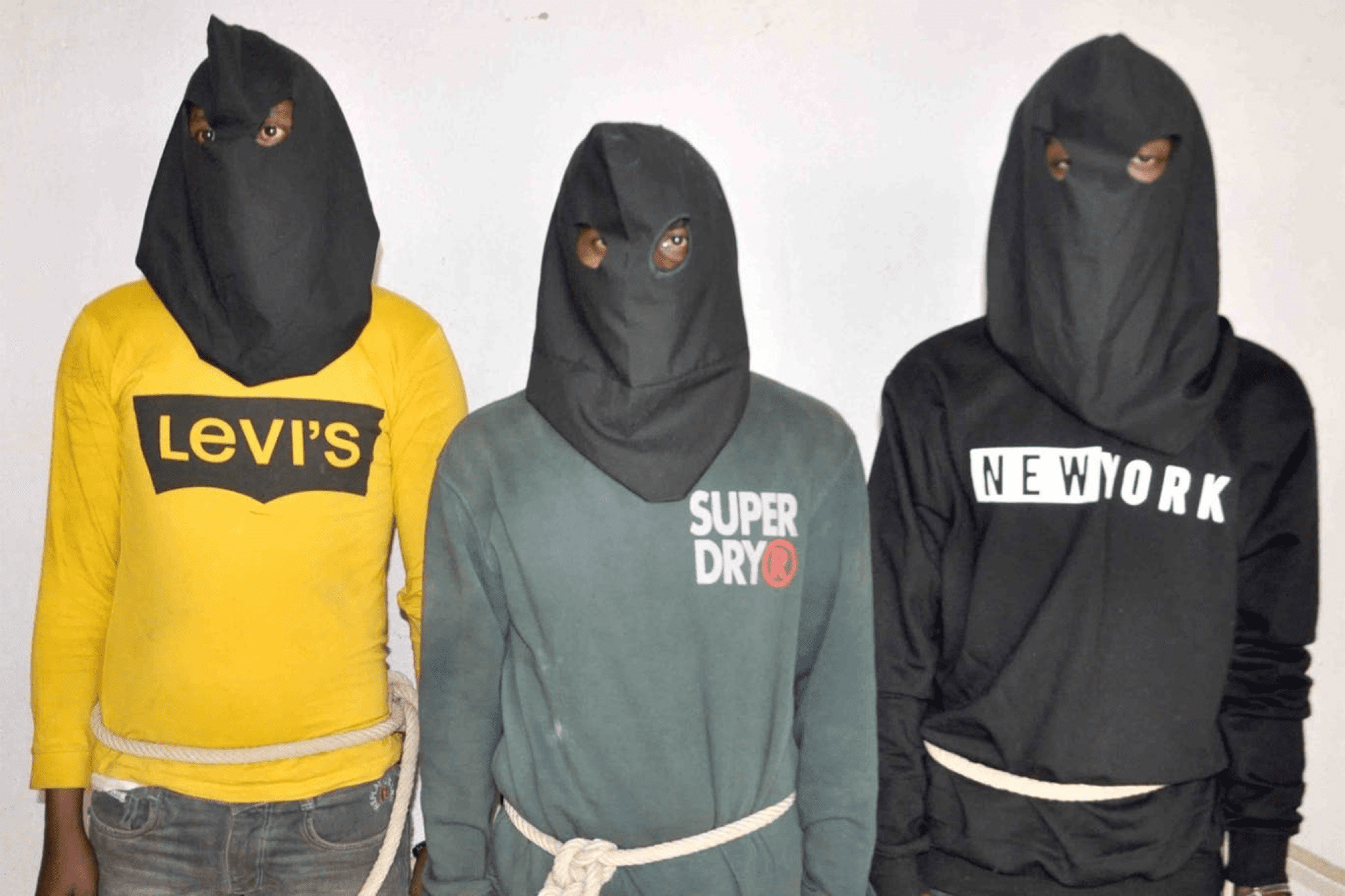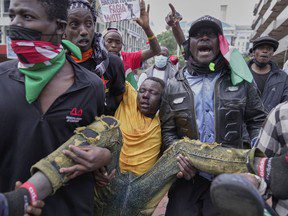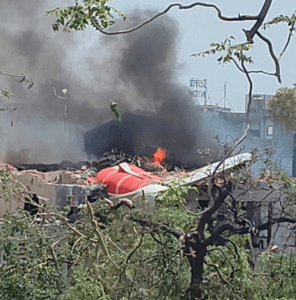An incident involving the alleged gang rape of a tourist holding Brazilian-Spanish dual nationality in Jharkhand, eastern India, has sparked widespread condemnation. The victim, a 28-year-old woman, along with her husband, encountered the attack during a motorbike tour across Asia, with their recent stop in Dumki district turning tragic.
Arrests and Ongoing Investigation
Authorities have confirmed the arrest of four individuals linked to the assault, while the search continues for three others implicated in the incident. Details regarding the identities of these men, who are also accused of assaulting the woman’s partner, have yet to be released to the public.
A Journey Interrupted
Prior to arriving in India, the couple had been exploring various parts of Asia on their motorbikes, documenting their travels. Over the weekend, the woman took to their Instagram account, which boasts 234,000 followers, to share the harrowing experience.
“Seven men raped me. They have beaten us and robbed us, although not many things [were taken] because what they wanted was to rape me,” she recounted in Spanish, highlighting the violence and threats they faced.
In another video, her Spanish husband depicted the physical toll of the attack, mentioning,
“My mouth is destroyed, but my partner is worse than me. They have hit me with the helmet several times, with a stone on the head. Thank goodness she was wearing the jacket and that stops the blows a little.”
These videos have since been removed from their social media page.
Police and International Response
Dumka’s Superintendent of Police, Pitamber Singh Kherwar, reported that the couple was assisted by a patrol van to a local health centre after they sought help. Initially, there was a language barrier, but the evident injuries led to immediate medical attention, where the couple disclosed the attack.
The Brazilian embassy in India has engaged with the incident, stating that the couple “were victims of a serious criminal attack” and has been in contact with the woman, local authorities, and the Spanish embassy. Despite the Spanish embassy offering psychological care, the couple opted for the treatment provided by Indian emergency services, with ongoing support and monitoring from both embassies.
Global Solidarity and Critique
The Spanish embassy in India voiced its stance on social media platform X, emphasizing a unified commitment to combating violence against women globally. This incident has reignited discussions on rape and sexual violence in India, a topic that gained prominence after the 2012 Delhi gang rape and murder case. Despite legal reforms, the struggle against such violence persists, highlighted by the thousands of rape cases reported annually in the country.
Over the same weekend, the narrative broadened as several women shared their own experiences of unwanted sexual attention while in India. The National Commission for Women’s chief, Rekha Sharma, faced backlash for her response to a US journalist’s observations on sexual aggression in India, critiquing him for not reporting incidents to the police and accusing him of defaming the country. This has spurred further debate on social media regarding the response to sexual assault and the portrayal of India.
Public Empathy
The couple’s ordeal has touched many, with numerous messages of solidarity and sympathy appearing under their Instagram and YouTube videos. This incident not only sheds light on the personal tragedy suffered by the tourists but also prompts a larger conversation about safety, the response to violence, and the role of social media in sharing and addressing such experiences.
🇮🇳🇪🇸 🔴‼️ BREAKING: A Spanish couple, Vincente and Fernanda, who documented their travels on Instagram, have been assaulted and robbed in India while on a motorcycle journey.
Fernanda was gang-rap*d by seven men, and the couple suffered serious injuries. Three of the seven… pic.twitter.com/wjgQ1scQ64
— SVS NEWS AGENCY (@svsnewsagency) March 3, 2024
Statistical Overview
Rape cases in India have been a significant concern, with the NCRB reporting thousands of cases annually. Here’s a general overview of the trend based on the available data up to 2019:
- 2015: There were 34,651 reported cases of rape.
- 2016: The number of reported rape cases was 38,947.
- 2017: Reports indicated 32,559 cases of rape.
- 2018: The number of cases slightly increased to 33,356.
- 2019: The NCRB reported 32,033 cases of rape.
These figures represent only the cases that were officially reported to the police. The actual number of incidents could be higher due to underreporting, which is influenced by factors such as social stigma, fear of retribution, and lack of trust in the legal process.
It’s important to note that in response to the public outcry following high-profile cases, such as the gang rape in Delhi in 2012, the Indian government has made efforts to strengthen laws regarding sexual violence. Amendments to the laws have included stricter penalties and the introduction of fast-track courts to expedite cases of sexual assault. However, challenges remain in terms of law enforcement, victim support, and societal attitudes towards victims of sexual violence.
The data presented here is for illustrative purposes to highlight the reported incidence of rape in India according to the NCRB. For the most current statistics, direct consultation of the NCRB reports or inquiries to organizations working in the field of women’s safety and rights in India would be necessary.
India’s struggle with sexual violence is a topic that has been at the forefront of national and international discourse, especially in the wake of high-profile cases that have garnered widespread media attention. The issue of rape and sexual assault in India is multifaceted, influenced by cultural, legal, and societal factors. It’s important to approach the topic with sensitivity and a commitment to understanding the broader context.
The National Crime Records Bureau (NCRB) of India provides annual statistics on reported crimes, including rape. According to the NCRB’s “Crime in India” report, in 2019, there were over 32,000 reported cases of rape. This figure represents only those cases that were officially reported to the police, and the actual number, including unreported cases, is likely much higher due to various barriers to reporting such crimes.
In 2020, despite the COVID-19 pandemic and the lockdowns that restricted movement, India saw a marginal decrease in reported rapes, with around 28,000 cases. However, this decrease does not necessarily indicate a reduction in incidents but could reflect the challenges and restrictions faced by victims in reporting assaults during the pandemic.
Legal and Social Context
The issue of sexual violence in India gained international prominence following the gang rape and murder of a young woman in Delhi in December 2012. The brutality of this case led to massive public protests and a demand for legal reforms. In response, the Indian government implemented stricter rape laws in 2013, including the introduction of the death penalty for rape cases where the victim is killed or left in a vegetative state.
Despite these legal reforms, challenges remain in the enforcement of laws and the judicial process. Victims of rape and sexual assault often face significant social stigma, which can deter them from reporting the crime. Moreover, the slow pace of judicial proceedings and the lack of support for survivors during the legal process can further exacerbate their trauma.

















